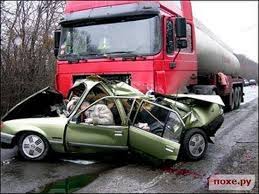We Outmaneuver Our Opponents
Truck Accident Attorneys Laredo – Negligent Trucking Practices
Laredo Personal Injury Lawyers » Negligent Trucking Practices
Chat with a Laredo Lawyer
Our Attorneys Discuss The Common Negligent Practices Which Lead to Commercial Vehicle Accidents
Laredo 18 Wheeler Accident Attorney
There are several practices that plague the commercial trucking industry today. By and large most truck accidents are not simplistic incidents where a diver takes his eyes off the road and collides with a car. Sure, that may be the ultimate culmination of a chain of negligent acts, but there are a lot of extenuating circumstances that lead to the point of collision. more information here
more information here
We have found in the past twenty-two years of truck accident cases that there are a number of common practices that lie at the heart of serious injury and/or fatal accidents.
Negligent Hiring
Negligent hiring results in having commercial trucking drivers on the road that are not qualified for the jobs they are performing. It is an easy trade off-for employers who are more concerned with cutting corners than with the safety of the public. And yet any easy fix for those employers who simply perform adequate background checks before hiring their employees.
It is expected that an employer perform due diligence in executing employee background checks. New commercial trucking employers should check the past employment history of employees. This is not an undue burden on commercial trucking employers because, for one, the industry standard is for former employers to forward their records of the employee’s history with them and, secondly, because of the ease that current technology has made to research an employee.
Negligent Training
Once hired, a driver must be trained for the equipment they will be using as state and federal mandates require. If an employee is negligently trained, this will also make it more likely that he could hurt someone on the roadway. The employer has a duty to consistently maintain that all his employees continue to meet state and federal guidelines that renew from year to year. Some employees may be negligent or even intentionally not keep up with mandatory guidelines in order to save time and cut costs.
Negligent Supervision & Maintenance
Employers who force their drivers to work long hours on tight schedules are an accident waiting to happen. Drivers who are overworked and stressed are a danger on the highways. When employers force drivers to adhere to unrealistic routes, drivers can miss essential safety requirements on their vehicles. They can become exhausted, fatigued, and fall asleep at the wheel. Being tired while driving can make drivers lose focus, slow their reaction times, and make critical errors in judgment.
18- Wheelers and other large tractor trailers are big, heavy, vehicles that require constant maintenance and frequent road travel puts a lot of stress on the equipment. An employer has a duty to make sure that the equipment his drivers are using is working properly. Once and accident occurs, it is important to investigate fully to know if it was malfunctioning equipment that could be the cause or if it was because a piece of equipment failed because it was not being properly maintained. Brake failure reducing stopping distance, tire failure causing blowouts, missing lights and missing mirrors can all make accidents and collisions all but inevitable.
Failure to Take Proactive Measures
There are protective measures that an employer should take when screening their employees and maintaining their vehicles. Drug and alcohol testing should be done and sleep apnea testing should be performed. Sleep apnea occurs when the person trying to sleep is taking shallow breaths or pauses between breaths resulting in a disturbed sleep. It is more common in persons with a high body mass index. Having sleep apnea can result in an exhausted driver who could be more dangerous to others on the roadway because of drowsiness. The Federal Motor Carrier Safety Administration (FMCSA) says that as many 28 percent of commercial driver’s license (CDL) holders have sleep apnea. An employer is not allowed to permit a driver with sleep apnea to continue working if the sleep apnea would affect his ability to operate his vehicle safely.
The employer can also use alert systems as a proactive preventative measure. There are new technologies that will cause the vehicle to wake the driver if they start falling asleep. Steering wheels that vibrate or a device the blows a puff of air on the back of the drivers neck are two examples of devices that could be installed in order to reduce the chances of a driver falling asleep at the wheel.
Do you have a legal issue or question?
Enter your phone number to speak with us now.
Failure to Take Remedial Measures
Commercial trucking employers may also be found to have liability for failing to take appropriate remedial measures as well. Once employers become aware of an issue they have a duty to fix the issue in a timely fashion. If the employer fails to do so, it could open them to liability for punitive damages as well as standard economic and non-economic damages.
If you or someone you care about has been severely hurt due to negligent trucking practices, we will fight for you. Our Offices has a history of excellence in getting those who are suffering or injured compensation they deserve. Contact us today
